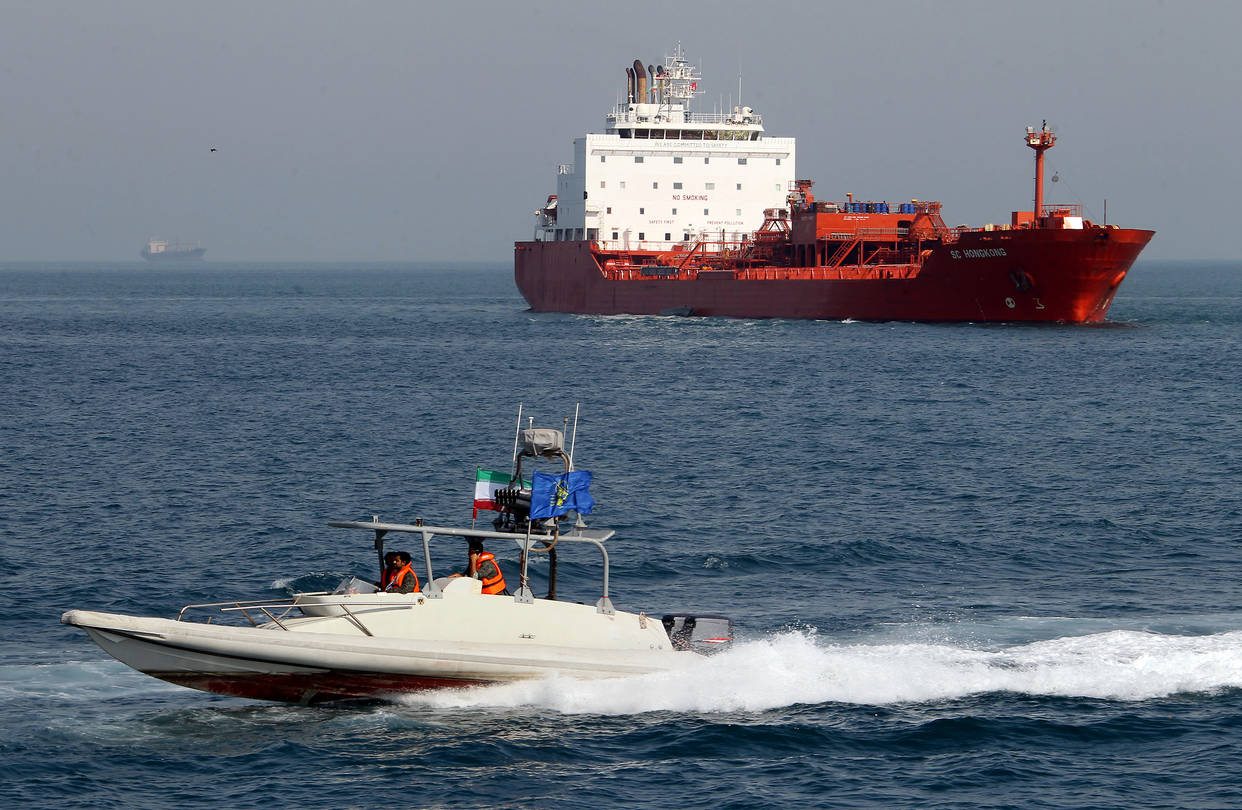
The U.S. “maximum pressure” campaign to stop Tehran’s meddling in its neighbors’ affairs, scale back its missile programs and comply with a nuclear weapons agreement has instead exposed America’s regional partners to Iran’s military reach, a panel of regional agreed on Thursday.
The continually tightening economic sanctions, particularly after May’s White House announcement that there would be no exceptions to buying Iranian oil and that businesses and nations would also be hit with penalties, has caused Tehran “to have a much more assertive posture for months and years to come,” David Jalilvan, a Berlin-based energy and security analyst and co-author of a new report on the campaign, said at the Atlantic Council on Thursday.
The most noticeable demonstration of that military reach came in September, when Iran conducted a sophisticated cruise missiles strike on critical Saudi petroleum infrastructure. This surprise attack followed several incidents earlier in the summer, when Iranian Revolutionary Guards attached limpet mines to oil tankers transiting the Persian Gulf and when other tankers were seized in Tehran’s answer to the sanctions campaign.
This “much more bellicose” response is not surprising, Jalilvand and others said at the Atlantic Council panel discussion.
Some of the youngest Iranian hardliners have combat experience in the Revolutionary Guards’ battle against the Islamic State in Iraq and Syria, and they have brought that knowledge and attitude back into Iran’s domestic affairs. They now join others who have believed since Iran’s 1979 revolution that Tehran can never negotiate with the United States.
More results of that political change away from further talks likely will be seen following Iran’s parliamentary and presidential elections next year and its future selection of a new Supreme Leader to succeed Ali Khamenei, who has held that position for 30 years.
Kenneth Katzman, senior Middle East analyst for the Congressional Research Service, said if “maximum pressure” was working to get Iran to accede to 12 U.S. demands to ratchet down its destabilizing activities in the region, “it wouldn’t carry out” an attack like it did on Saudi Arabia.
He cited Defense Intelligence Agency assessments of Iranian military strength now almost a year into the announced American sanctions campaign. He then quoted the region’s top military officer, Marine Gen. Kenneth McKenzie, that “Iran is in position to attack” the Gulf states while avoiding possible American targets in the region.
“Iran is getting progressively strategically stronger” at relatively little cost, Jalilvand said in answer to a question.
Although Iran’s gross domestic product is expected to fall about 9 percent because of the sanctions this year and there have been large demonstrations in a number of its larger cities that have been met with armed force by the regime, he estimated Tehran is spending about $3 billion a year on its missile program, other military activities and support for proxies like Hezbollah in Lebanon. He said this is a fraction of what American allies like Israel and partners like the Sunni Gulf states spend on their militaries.
There is a firm belief in its leadership that Iran “needs to be able to hit back on others in the area” to keep the revolution intact, he added. The American sanctions and the European Union’s inability to work around them while urging Tehran to stay within the nuclear agreement has produced a “logic [of necessary force] that will not be changed.”
Katzman disagreed with the notion that Iran feels cornered as a result of the campaign. The missile attack on Saudi infrastructure and the mining and seizure of oil tankers were the big reasons “why the UAE is visiting” Tehran and Saudi Arabia “is visiting, and why Mr. [Donald] Trump hasn’t pulled the trigger” in response to the downing of an American drone.
Katzman said “perhaps [the Gulf states] are going to mute” their antagonisms to the Islamic Republic and that could lead to an alteration in U.S. policy in the Middle East.
Right now, Jalilvand said Iranian leaders see “confrontation yields better results than engagement,” particularly with Washington and the European Union.
While remaining guardedly optimistic about future engagement with Tehran, such as the recent prisoner exchange, Barbara Slavin, director of the council’s Future of Iran Initiative, said, “there is a lot of confusion over what [the American] goal is” with the campaign and the policy behind it. In many ways, she said the Iranians see the policy as ultimately leading to “regime change.”
Complicating matters in Washington is the administration has had four national security advisers and two secretaries of state in three years saying different things about the Middle East and Iran, she said.
For sanctions to work effectively in having Iran meet the demands concerning its short- and long-range missile programs, backing of Shiite militias in Syria and Iraq, and power centers like Hezbollah, Slavin said there needs to be multi-layered support for them as existed with the European Union before and clear goals. “We don’t have those conditions now.”





